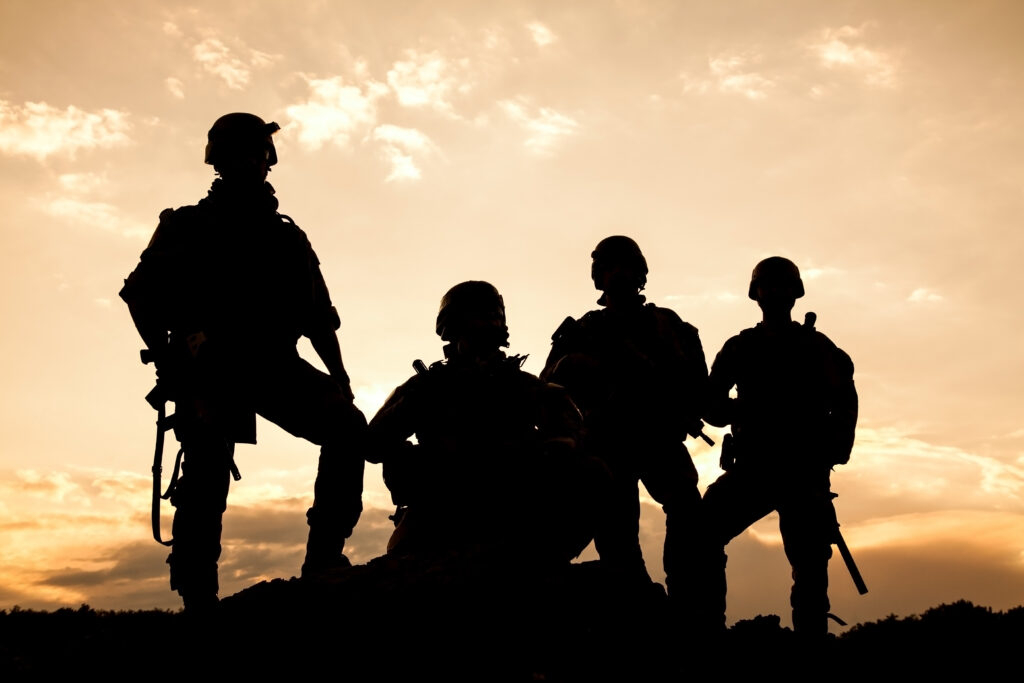
Was it Worth It?
A Veteran, Spouse, Mother and Health Expert’s Perspective following the end of the war in Afghanistan.
As we watch the scene in Afghanistan unfold, this seems to be the question that we, as a Nation, are grappling with. More specifically, it is a question that I see so many of my brothers and sisters struggling to answer themselves. As an Air Force Veteran, a military spouse, and a mother, my brothers and sisters are the service members and their family members; the spouses, children, mothers, fathers, brothers and sisters alike.
In the unfolding of this chaos, we must acknowledge the sacrifice of the family unit and recognize the emotions of both the military family members and the service members. Because for the past 20 years, the Middle East has been intimately embedded in our lives. For some of us, the Middle East has been a narrative throughout our entire lives. For others, it’s been integrated into our entire military career. And unlike our civilian neighbors who can choose to tune out the foreign political happenings of the day, we’ve lived a cyclical pattern of transience- considered by our neighbors as just another “short-term” visitor. And they’re right: move for the promotion, train for the deployment to the Middle East, deploy to the Middle East, return and relearn normal, repeat. Was it worth it?
Before I provide my perspective, I feel the need to make something abundantly clear: I have never myself been deployed to the Middle East. However, as a prior Air Force occupational therapist, I spent every day treating the visible and non-visible injuries sustained from missions directly and indirectly related to the War in Afghanistan. I’ve felt the challenges of multiple deployments within my own family. Like most military spouses or dual-military couples, I’ve got my response memorized when my non-military girlfriends ask, “How do you do it?” But it’s not the challenges that drive my response to my own processing of this question; in fact, it’s quite the opposite. It is my understanding of the reason why one chooses to put their own life on the line.
As the wife of a Pararescue service member, I have been surrounded by men who have chosen to live their lives according to the ultimate ethical and moral code: “These things we do, that others may live.” The wives and mothers are my sisters, their children are my nieces and nephews. I know some of these families as well as I know my own. I also know that when shit hit the fan, our brothers didn’t run into a direct line of fire to support a congressional policy, or to back the speech of the President. They did it out of the purest form of love. A love that developed because of their shared experiences and deep mutual understanding that sacrificing their own lives to save one another was never a question. It’s an unbreakable bond between brothers that extends to the family members within our community. And this bond is replicated amongst so many different communities in the United States military.
So for me, it came down to asking myself, was what worth it? The multiple moves, the TDY’s, being geographically separated from my Mom and Dad and brothers for 100% of my service, four deployments, wondering if my husband would be there for the birth of our first baby, and holidays spent alone? My answer is absolutely, it was worth it. As a wife and a mother, I would sacrifice all of that again, in return for the family I have gained today. I have more brothers and sisters than I can count on one hand. Our daughter has a network of protectors that love her like their own. My husband has bonds with brothers that he’ll hold until the day he dies. That kind of love lasts forever.
This doesn’t mean I don’t feel anger, sadness, grief, agony. This week, I have felt so much pain. Pain for the multiple widows I know whose best friend was stolen from them. Pain for the children who are growing up knowing only the pictures and videos of a father taken entirely too early. Pain for the hundreds of stoic young men and women with the American flag behind them, whose name, date of birth, and “KIA” date line the walls of prominent military buildings. Pain for the Veteran who can’t sleep because of post-traumatic stress and brain injury, pain for the failed marriages from too much stress and not enough support, pain for the person who couldn’t handle the flashbacks any longer, and took his own life. I’m 31 years old. I was in my 6th grade homeroom when September 11th happened, and I remember it like it was yesterday. I am not alone in saying that I’m feeling 20-years of pain, for myself, for my fellow Veterans, for my fellow family members, for my fellow humans including the American and Afghan people.
My answer to this question is my own. My answer cannot account, nor should it account, for any other person’s definition of what “it” is, when we ask ourselves “was it worth it?” Some people will say no, it wasn’t worth it. For them, “it” stands for the silver bracelet they wear on their wrist, representing the death of their husband, wife, daughter, son, brother, sister, friend, or even distant fellow service member. They will say nothing political is ever worth the life of a human. I agree, and I feel this deeply. Never as deeply as the wife, the child, or the brother next to him when he took his last breath. War is political, at the highest levels- but War is personal when you’re in it. So if you’re feeling anger, or sadness, grief or confusion this week, you’re right. If you’re saying it wasn’t worth it, you’re right. If you’re saying it was worth it, you’re right.
Instead of choosing a side, like so many of us are used to doing these days, we should all take the time to define what this question means to us personally, and understand and acknowledge that there is no universally right answer- only our own right answer.
The emotions we are feeling as a military, a military family, and a Nation are real, and this week, they’re likely painful. As I look around, I realize that it’s not the ones who are posting that I’m most worried about. It’s the countless other military members and family members who are silently reliving their experiences. If you’re one of them, I want you to know that you’re the reason I wrote this. You’re not alone. You can, and will get through this; we can, and will get through this. Let’s take care of ourselves and each other in these coming weeks, because what better way to honor the ones we have lost, than by learning how to live ourselves?
Here are 5 steps you can take to handle these heavy times.
- Check in on your friends.
- Be authentic. Start the conversation with a little bit of your own vulnerability to encourage your friend to do the same. “Hey ___, this week has been rough. I’m feeling _____. How are you feeling? I’m a phone call away if you ever need me.”
- Take Care of Yourself Emotionally
- Take 15-minutes, a piece of actual paper and a real-life pen or pencil. Remove technology and find a quiet space, preferably outdoors. Write down three emotions you’ve felt this week. For each, write another three reasons why you’re feeling that way. Take your time, read and think about your responses. Try to understand what is causing each feeling.
- Take Care of Yourself Physically
- Sleep: According to research, adults should be aiming for no less than 7 hours per night. Concentrate on getting the best night sleep by evaluating your environment. Make sure it’s as dark as it can be (blackout curtains are great), as silent as it can be (noise-cancelling earbuds or a high-quality sound machine with white noise) and adjust your sleeping temperature to 65-68 degrees Fahrenheit.
- Rest: Give yourself permission to not do a task, or stop doing something. Rest once this week for at least 20 minutes, at a time when you would otherwise be “productive.”
- Eat well: this means something different for each person depending on goals and individual needs.
- For general easy healthy goals, start small and 1) try to eat something green at every meal 2) substitute a piece of fruit for an otherwise unhealthy snack or dessert (apple with peanut butter or strawberries with dark chocolate chips are a personal favorite) 3) “Jazz up” vegetables by incorporating them into delicious meals (veggie tacos or quesadillas or protein and veggie stir-fry are some other staples in my house)
- Drink water: keep yourself accountable, however it works for you. Some people purchase a huge water jug to take to work, others like a reminder on their phones or watches. Don’t skip this though- water has great effects on mood, skin health, organ health and more.
- Take Care of Yourself Mentally
- Take a social media break, whether or not you think you need it.
- Breathe: Practice “Take 5” breathing twice per day. Stretch your hand out like a star, breathe in as you trace upward with the pointer finger of your other hand, breathe out as you trace down. Repeat for the entire hand, and back again toward the thumb.
- Take Care of Yourself Spiritually
- Practice gratitude: write or say out loud 3 things you’re thankful for, within the first hour of waking up. Try to repeat this routine for 30 days
- Go outside, often
- Take time out of your day or week to connect with your family, friends, and whatever religion you practice
Dr. Jennifer Byrne is an Air Force Veteran, an Air Force special operations spouse, a mother, an occupational therapist, and the owner of 5by5 Performance Therapy, a virtual health and wellness business for Veterans, First Responders and their families.


